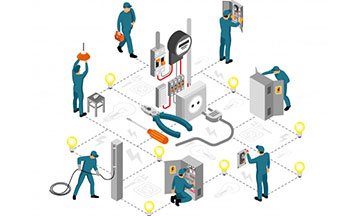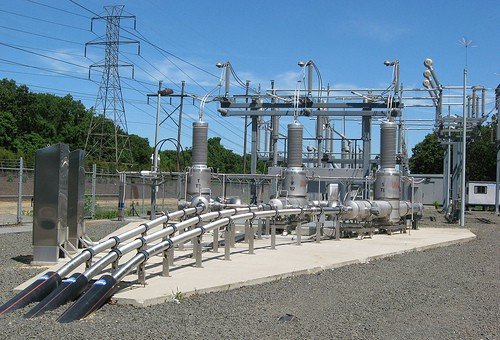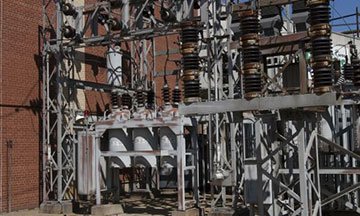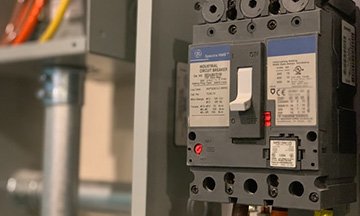Grounding Systems Design & Application
| Date | Venue | Duration | Fees | |
|---|---|---|---|---|
| 27 May - 31 May, 2024 | Dubai | 5 Days | $4750 | Register |
| 24 Jun - 28 Jun, 2024 | Dubai | 5 Days | $4750 | Register |
| 08 Jul - 12 Jul, 2024 | Dubai | 5 Days | $4750 | Register |
| 26 Aug - 30 Aug, 2024 | Dubai | 5 Days | $4750 | Register |
| 23 Sep - 27 Sep, 2024 | Dubai | 5 Days | $4750 | Register |
| 28 Oct - 01 Nov, 2024 | Dubai | 5 Days | $4750 | Register |
| 18 Nov - 22 Nov, 2024 | Dubai | 5 Days | $4750 | Register |
| 04 Dec - 06 Dec, 2024 | Dubai | 3 Days | $3950 | Register |
Course Overview
Grounding is among the critical aspect of safety in power systems and power transmission. A well-designed grounding system is pivotal in ensuring power networks have a path for redirecting surge currents from various sources to the soil and ensuring electrical equipment and users are safe from the effects of electrical noise. Improper grounding systems in electrical networks can cause great harm to final consumers and connected equipment.
How do you use grounding techniques?
Therefore, it is prudent for electrical professionals and field technicians to grasp fully the ideas, tools, and principles that will make grounding systems and designs effective. Learning about grounding systems will also help mitigate the risks that come with non-enclosure of electrical equipment at ground potential and the financial losses that follow an electrical network failure.
This Zoe course will cover grounding system design principles and industry best practices with technical requirements of earthing links and their operations in mind. Many concepts related to power system grounding and earthing and their applications in industries, power distribution grids, and other applications shall be discussed. Most recommended methods and acceptable standards will also be taught.
Some of the details that shall be taught include surge protection, lightning protection, substation earthing design, grounding best practices, power networks disruption mitigation methods concerning earthing, and selecting the most suitable earthing device for the right job.
How do you design grounding?
All the principles or electrical grounding System design, best and accepted methods and principles, technical requirements, power system protection controllers, power system devices, protection procedures, and other items that are related to power grounding systems are studied extensively in this course. It will be beneficial for participants to be involved in practical aspects of the course such as rod quality determination, soil resistivity analysis, grounding material selection, and devices selection to fully utilize the gains of this course.
Course Objectives
From this course, you will learn:
• A wholesome understanding of all concepts related to grounding system design and application
• Enhanced grounding design skills that are market-ready and can be used in the field to protect power systems
• The necessary techniques and methods that are used in ground electrical systems and devices
• Lightning and surge protection
• Analysing and calculating the required grounding systems for power substations and networks
• Evaluating risks and coming up with mitigation techniques as they relate to power systems
• Soil testing and layers classification
• Selection of earthing rods and quality determination
• Examining substations to ensure safety guidelines are followed.
Training Methodology
All the training shall be undertaken by industry-trusted professionals with relevant skills and knowledge in grounding design. There will be a mixture of practical lessons and theoretical lessons with an emphasis on understanding the course to gain work-ready skills. Powerpoint slides, well-prepared pdf notes, and case studies will be provided. All the participants are encouraged to engage the training facilitators and make the learning a two-way activity. Illustrations with the correct analysis and system analysis shall be part of the course. Training videos may be employed where the tutor will feel appropriate. Roleplay is encouraged in this course.
The blended training was developed by Zoe Talent Solutions and is applied to all its courses. This type of method of teaching is known as Do–Review–Learn–Apply Model.
Organisational Benefits
On completing this course, organisation benefits will be:
• A proper grasp of grounding concepts and methods with equipotential bonding.
• Developing the recommended and suitable approach to establish an effective and established substation earthing and device protection.
• Soil resistivity, testing, and evaluation familiarisation.
• Selection of grounding electrodes.
• Learn about power surges, harmonics, oscillations, and power swings.
• Get the necessary skill to identify power hazards and learn about the right safety measures.
• Understand the need for grounding system design and its application.
Personal Benefits
After successful completion of this course, all the participants will be familiar with:
• Power system grounding checking and quality determination
• Different power system grounding techniques and methods with the right execution
• Power system hazard handling and protection
• Lighting protection techniques and overcurrent avoidance
• Market-ready skills that can be utilized to propel one to greater career heights
• Grounding design objectives and their configurations
• Step by step approach to designing grounding systems
• Power hazard issues and mitigation methods
• Power hazard avoidance by ensuring proper grounding design
• Power Grounding enhanced skill set to handle different scenarios with capabilities to assume higher responsibilities involving critical decision-making regarding safety, system protection, and devices protection
• Protection and safety techniques for different scenarios and needs
Who Should Attend?
All the professionals involved in the planning, operation, design and maintenance of power systems are encouraged to participate in this course This course will greatly help:
• Electrical Engineers for installation designs
• Electrical Technicians for installation guides
• Power System Operators to ensure safety
• Planning Engineers to provide provision for power protection alternatives and handle material selection
• Planning Managers for critical decision making
• Instrumentation Engineers
• Asset Engineers
• Commissioning Engineers
• Design Engineers
• Investors
• Power vendors to ensure compliance
• Any other person is interested in how substations, power lines, and electrical devices are protected
Course Outline
This course will cover various aspects of becoming a better grounding professional
Module 1: Why grounding systems are important?
• Ground electrodes
• Impact of lightning on power networks and devices
• Types of electrical faults
• Arcing in power systems
• Bonding
• Power noise avoidance
• Elimination of static charges by grounding
• Surge protection
• Power lines and lightning relation
• Spark Energy and ignition hazard
• Evaluation and handling static charges
• Ligtning strikes handling
• Grounding design fundamentals
• Static charges build up
• Soil resistivity analysis
• Consequences of power faults
Module 2: Grounding systems
• TT Systems
• TN Systems
• TN-C Systems
• Protection devices
• Thermal reaction due to resistance
• Shock hazard
• Solidly grounded systems
• Resistance Grounding Systems with NER utilisation
• Impedance Grounding with Neutral Reactor use
• Touch Potential
• Surge protection using Grounding systems
• TN-S System
• TN-S-C Systems
• Earth fault protection
• Metal enclosure for Grounding
• Step potential
• Induced Voltage handling
• EMI Suppression
• Ungrounded Systems
Module 3: Grounding Protection Methods/Techniques
• Types of circuit breakers
• IDMT O/C & E/F protection
• Overcurrent Protection
• Overvoltage Protection
• Earth Fault Protection
• Per Unit Measure
• Sequence Networks
• Protection Criteria
• Fuse Utilisation
• Relay Systems
• Transformer Protection
• Measuring Transformers
Module 4: Ligtning Protection
• Electrostatic
• UPS Usage
• Capacitative Coupling
• Electrical Noise categorization
• Equipotential Bonding
• Power system surges
Module 5: Risk mitigation
• Electrical Noise handling
• Grounding Loop mitigation
• Electrical Harmonics handling
• Lightning Arrestors installation
• Surge Arrestors
• Electrical Principles for surge handling
• Shielded Transformer Isolation
• Grounding Loops as a source of Electrical Noise
Module 6: Effective Grounding Systems
• Ground Fault Current handling
• HV substation and lines grounding
• LV and MV substation and lines grounding
• Outdoor HV substation grounding
• Soil Resistivity evaluation and calculations
• Lightning probability
• Lightning incidence handling
• Lightning risks mitigation
• Design consideration for Effective Grounding
• Transferred current and voltage
Module 7: Analysis and Evaluation
• Grounding System approach
• Chemical corrosion of Grounding rods
• Earthing rods resistance measurement
• Multiple earthing rods utilization
• Parallel Grounding
• Dingle rods resistance
• Soil resistance analysis and measuring techniques
• Soil resistance results in interpretations
• Soil resistance concerning Grounding
Module 8: Resistivity of Surface Materials
• Concrete
• Crusher granite
• Washed granite
• Washed limestone
• Asphalt
• Wet Organic Soils
• Dry Organic Soils
• Sand and Gravel
• Shale’s
• Bentonite
• Clay
• Slates
Module 9: Grounding System Design
• Grounding System Data Collection Techniques
• Data analysis methods
• Noise Discharge
• Using grounding systems
• Human safety











